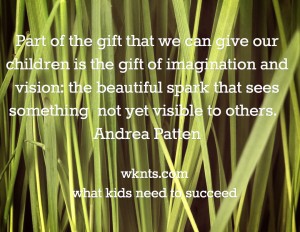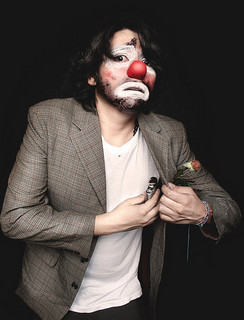There are things we hear so many times we start to think they’re true. How about this one: “Nobody teaches us how to be parents.”
I disagree. We’re parenting experts: whether or not we’re aware, most of us have “studied” parenting for years. We’ve learned by watching what others do — especially the parents who raised us. Whether we like the way they taught us or were injured by some of their choices we remember the lessons. All of them. It’s as if small humans come equipped with a little video camera in our heads… the one that runs nonstop, 24 hours a day, seven days a week… forever. [Tweet “It’s as if small humans come equipped with a little video camera in our heads…”]
Don’t believe me? What about that unsettling experience of opening your mouth and hearing your parents’ words come out? I can’t be the only one who has had that happen. And to discover that by hearing something like “don’t make me turn this car around” is confusing. Upsetting perhaps. But the reason those words jump so quickly from our brains to our lips is simple: that’s what is in there.
Some people acknowledge and accept that programming without question. Others follow their parents’ paths unconsciously. Still others make an effort to discard everything from their early years. Many settle on a blend: trying to implement new ideas in some areas while keeping the best of the traditions they grew up with.
And we have plenty of material to work with before we read books and blogs or take courses. Each of us has a range of strengths and weaknesses, a wealth of experience to draw on during the hard times… and a bunch of pesky bad habits to tackle over and over again.
There as many definitions of success as there are individuals. Part of the challenges of being a successful parent is to develop a definition that fits for you and your family. Perhaps all of us really are parenting experts: we have deeply imprinted models, a lot of time “in the laboratory”…. combined with data and hypotheses about what works and what doesn’t.
Related articles
“I found the course useful and engaging. Despite having courses that covered similar issues in college I was able to pick up new information. I found the development of relationships activity helpful in knowing, or at least being aware of where patient/staff conversations should stop to avoid crossing boundaries.”
“I liked the idea that it is OK (and professionally appropriate) to wear only one “hat” at a time. I can allow people to stop expecting me to be a…. therapist, analyst, educator, transporter, religious guru, magician…..”
Staff comments from addiction treatment counselor training series presented at residential treatment facility for women
Thanks! I thought you were a pretty wonderful group.







